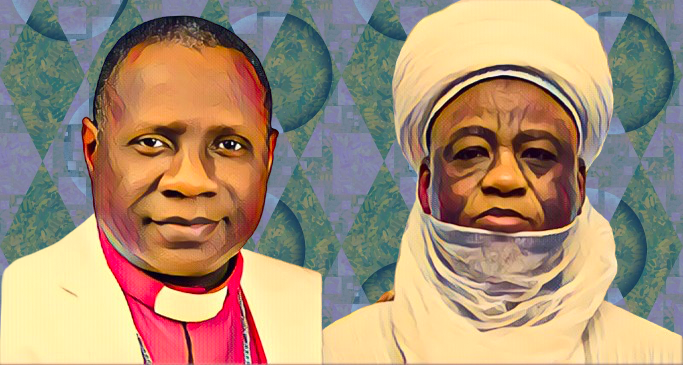Nigeria is facing a severe security crisis, and the nation’s top religious leaders are calling for immediate government action. The Nigeria Inter-Religious Council (NIREC), led jointly by Archbishop Daniel Okoh, President of the Christian Association of Nigeria (CAN), and Sultan Muhammadu Sa’ad Abubakar of Sokoto, President-General of the Nigerian Supreme Council for Islamic Affairs (NSCIA), has expressed deep concern over the surge in violence across the country.
In a statement released by NIREC’s Executive Secretary, Fr. Prof. Cornelius Omonokhua, the religious leaders condemned the recent wave of banditry, abductions, and killings that have shaken several states. Specific incidents cited include the brutal killing of 13 farmers in Shiroro Local Government Area of Niger State, the abduction of 150 individuals in the Gobir District of Sokoto State, and the murder of the District Head of Gatawa in Sokoto State. The Council highlighted these events as urgent issues that require swift action from both the government and security agencies.
Urgent Need for Enhanced Security Measures
NIREC has called on the federal government and security forces to intensify their efforts to combat these threats. The Council emphasized that the increasing rate of violent crimes is beyond alarming and demands a more robust response. “The rate at which banditry, abductions, and killings are increasing in the country is beyond alarming, and there is a need to bring these heinous acts to an end,” the statement read.
The religious leaders stressed the importance of protecting citizens, enabling them to conduct their daily lives without fear. They urged the government to deploy additional resources and strategies to curb these acts of violence. “NIREC, therefore, calls on the government and security agencies to intensify their efforts to eradicate these menaces in our society so that citizens can go about their normal business without fear or apprehension,” the statement continued.
Furthermore, NIREC expressed its condolences to the families of those who have lost their lives due to these violent acts and called for the safe release of those still held captive. The Council offered prayers and support for the victims’ families, urging the entire nation to unite in the face of these challenges.
A Call for Vigilance and Community Effort
The Council also underscored the role of citizens in ensuring security, stating that it is a collective responsibility. They called on all Nigerians to be vigilant and report any suspicious activities to the authorities. “Lastly, the Council calls on all Nigerians to be cautious, vigilant, and report any suspicious activity, as security is a collective effort and not just the responsibility of the government alone,” the statement urged.
The appeal for vigilance and unity comes at a time when the nation is grappling with multiple security challenges, including terrorism, armed banditry, and communal violence. By fostering a collaborative approach between the government, security agencies, and citizens, NIREC believes that Nigeria can overcome these threats.
The religious leaders’ call to action highlights the urgent need for a comprehensive strategy to address the root causes of insecurity. They are urging the government to focus on not only immediate responses but also long-term solutions that involve economic development, social cohesion, and community resilience.
A Path Forward: Collective Action for National Stability
As the security situation in Nigeria continues to deteriorate, the plea from religious leaders underscores the gravity of the crisis. Their joint statement is a call for all Nigerians to come together to confront the challenges facing the nation. The partnership between religious communities and the state is seen as a vital element in addressing insecurity and fostering peace.
The leadership of NIREC, representing both Christian and Islamic communities, signifies a unified stance against violence and a commitment to protecting all Nigerians, regardless of their faith. By working together, religious leaders hope to mobilize a nationwide effort to restore peace and stability.
Nigeria’s path to security requires the cooperation of everyone—government, religious leaders, and citizens alike. The urgency of the situation demands immediate and sustained action, ensuring that all Nigerians can live without fear and that the country moves towards a more secure and prosperous future.
Source: Vanguard



